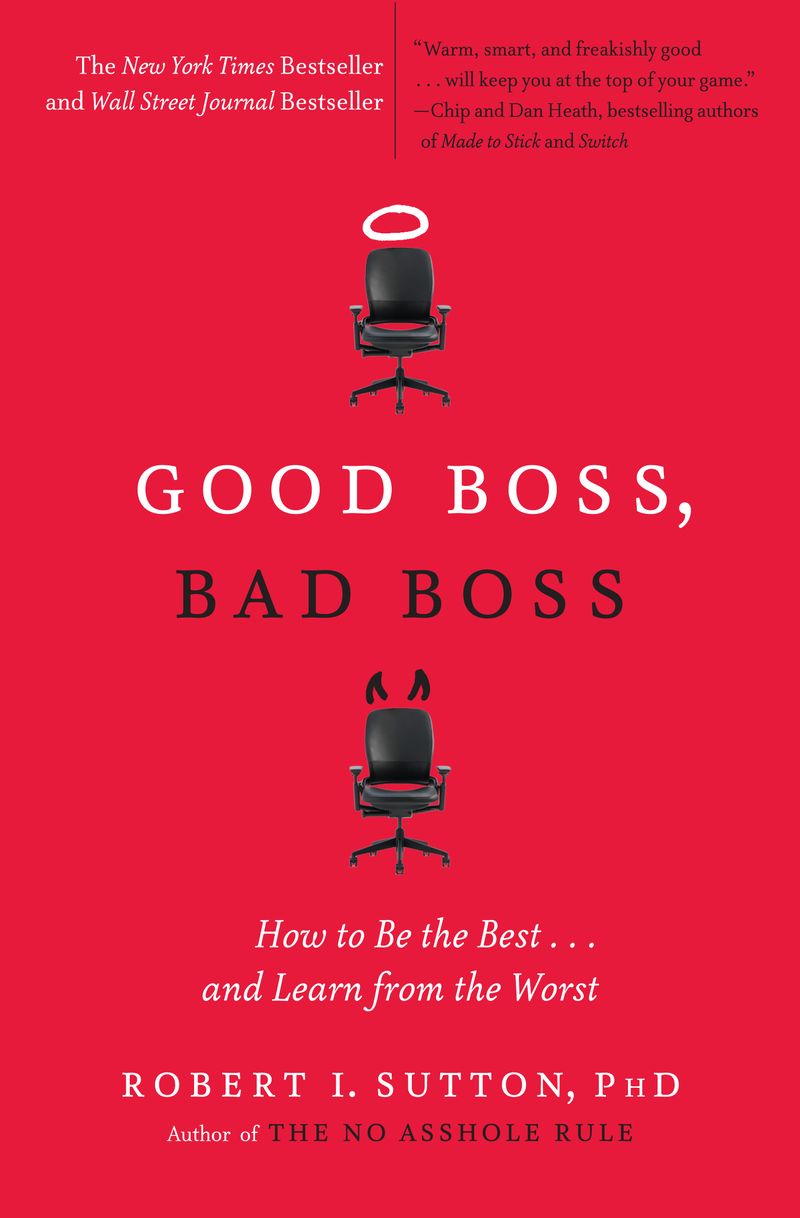
I haven't been blogging much the last couple weeks because, in addition to the usual madness that goes with the holiday and start of the term, I have been wrapping up a new chapter for the Good Boss, Bad Boss paperback, which will appears March 15th (but I suspect will be shipping before that, Amazon usually does). Above is the new cover, which I quite like because it stands out and is now more distinct from The No Asshole Rule.
I had planned to write just a few pages for the Epilogue, but once I took the time to think about what I had learned since Good Boss, Bad Boss was published, I became rather obsessed and wrote a lot of text. As my editor Rick Wolff wisely advised, I trimmed back the original draft quite a bit, but it still runs about 8,000 words. The opening looks back on the experience and devotes special attention to Luiz Uruza, the boss of the trapped Chilean miners (who I first wrote about at Psychology Today.) and was interviewed about on CNN International. I then present new nine lessons I've learned or come to believe in more strongly about what it takes to be a great boss.
To give you a taste, I thought you might like to see the fourth lesson (warning, this will be copy-edited, so it may read slightly different when it is published, but the point will remain the same):
4. Bosses who are civilized and caring, but incompetent, can be really horrible.
Perhaps because I am the author of The No Asshole Rule, I kept running into people – journalists, employees, project managers, even a few CEOs – who picked a fight with me: They would argue that good bosses are more than caring human-beings; they make sure the job gets done. I responded by expressing agreement and pointing out this book defines a good boss as one who drives performance and treats people humanely. Yet, as I started digging into the experiences that drove my critics to raise this point – and thought about some lousy bosses – I realized I hadn’t placed enough emphasis on the damage done, as one put it, by “a really incompetent, but really nice, boss.”
As The No Asshole Rule shows, if you are a boss who is a certified jerk, you may be able to maintain your position so long as your charges keep performing at impressive levels. I warned, however, that your enemies are lying in wait, and once you slip-up, you are likely to be pushed aside with stunning speed.
In contrast, one reason that baseball coach Leo Durocher’s famous saying “nice guys finish last” sometimes right is that, when a boss is adored by followers (and peers and superiors too) they often can’t bring themselves to bad-mouth, let alone fire or demote, that lovely person. People may love that crummy boss so much they constantly excuse, or don’t even notice, clear signs of incompetence. For example, there is one senior executive I know who is utterly lacking in the necessary skills or thirst for excellence his job requires. He communicates poorly (he rarely returns even important emails and devotes little attention to developing the network of partners his organization needs), lacks the courage to confront — let alone fire — destructive employees, and there are multiple signs his organization’s reputation is slipping. But he is such a lovely person, so caring and so empathetic, that his superiors can’t bring themselves to fire him.
There are two lessons here. The first is for bosses. If you are well-liked, civilized, and caring, your charms provide protective armor when things go wrong. Your superiors are likely to give you the benefit of the doubt as well as second and third chances – sometimes even if you are incompetent. I would add, however, that if you are a truly crummy boss – but care as much for others as they do for you — stepping aside is the noble thing to do. The second lesson is for those who oversee lovable losers. Doing the dirty work with such bosses is distasteful. But if rehabilitation has failed — or things are falling apart too fast to risk it — the time has come to hit the delete button.
I'd love to hear your thoughts. Do you agree? What did I leave out? How do you deal with one? And, following my recent post, are the advantages to working for one of these lovable losers?
![Sutton_GoodBossBadBossTR[1] Sutton_GoodBossBadBossTR[1]](https://www.bobsutton.org/wp-content/uploads/a/6a00d83451b75569e2016302386c42970d-800wi.jpg)

